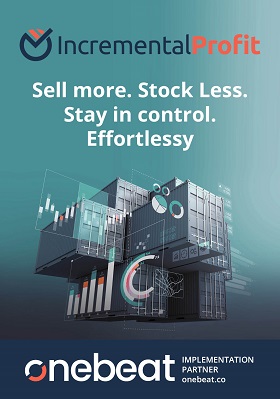Getting products into customers’ hands quickly is no longer a “nice-to-have”; it’s an expectation. In South Africa’s fast-moving retail space, shoppers demand speed, convenience, and flexibility. That’s why many retailers are adopting ship-from-store: a fulfilment model that turns physical stores into mini-distribution hubs.
This approach allows retailers to deliver faster and reduce costs. However, making it work across multiple store locations takes more than extra staff; it requires the right system. That’s where a Warehouse Management System (WMS) comes in. A modern WMS brings the visibility, automation, and intelligence retailers need to run ship-from-store smoothly and profitably.
In this article, we’ll uncover how ship-from-store works, WMS’s role, and the benefits it unlocks for South African retailers.
Why Ship-from-Store is a Game-Changer
Ship-from-store lets retailers use their existing stores as fulfilment centres. Instead of shipping every order from a central warehouse, stock can be dispatched directly from the closest store to the customer. Done right, this model delivers three big wins:
- Faster Deliveries - Retailers can offer same-day or next-day delivery with products from local stores in most urban areas. This is critical as research shows 67% of South African consumers now expect faster delivery from local brands (PwC, 2024).
- Lower Last-Mile Costs - The last mile can account for more than half of delivery costs. Retailers reduce travel distances and improve delivery routes by shipping from nearby stores, cutting costs without sacrificing service.
- Smarter Use of Inventory - Instead of leaving stock on shelves, retailers can fulfil online orders from slower-moving stores. This improves stock turnover, reduces markdowns, and boosts margins. Some retailers see a 10–30% improvement in inventory utilisation, , particularly in fashion and consumer electronics.
How a WMS Enables Ship-from-Store Success
A Warehouse Management System is the backbone of efficient ship-from-store operations. Here’s how it makes the difference:
- Real-Time Inventory Sync - A WMS keeps stock levels updated across every store and warehouse. This ensures customers only see truly available items, reducing cancellations and building trust.
- Automated Order Routing - Orders are automatically directed to the closest store with available stock. This speeds up delivery and cuts down on logistics costs.
- Alerts and Visibility - With built-in stock alerts, retailers can respond quickly to low inventory before it affects sales.
- Seamless System Integration - A WMS connects to both POS and e-commerce platforms, giving retailers a single, accurate view of stock and orders across all sales channels.
The Risks of Ship-from-Store Without a WMS
While the benefits are clear, managing ship-from-store without the right system creates serious challenges:
- Inaccurate stock counts - The risk of selling items no longer in stock leads to cancelled orders.
- Manual errors - Picking, packing, or labelling mistakes slow down fulfilment.
- Overpromising - Lack of visibility across stores leads to stockouts and unhappy customers.
- Poor coordination - Disconnected systems between stores and warehouses cause delays and inefficiencies.
What to Look for in a WMS
Not all warehouse management systems are equal. Retailers should focus on solutions that offer:
- Inventory accuracy - Real-time updates and minimal discrepancies.
- Intelligent routing - Automated order allocation to the best fulfilment point.
- Multi-location management - The ability to track and control stock across stores, warehouses, and distribution centres.
- Scalability - Flexible enough to handle growth, whether adding new stores or scaling to franchise networks.
Conclusion
Ship-from-store is transforming the way South African retailers meet rising customer expectations. It delivers faster shipping, reduces delivery costs, and makes better stock use, but only if backed by the right technology.

Alan Richard, Managing Director, Apex Real Time Solutions







